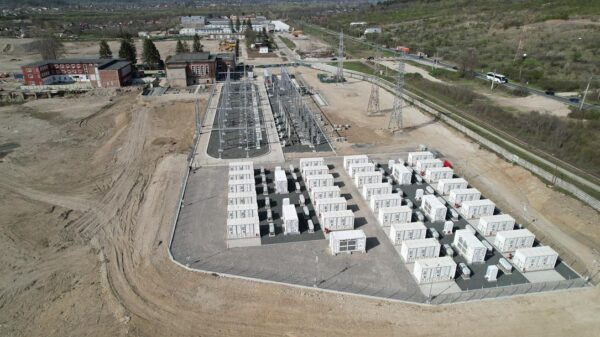BUZZ High Performance Computing (BUZZ HPC), a subsidiary of HIVE Digital Technologies (CVE: HIVE) (NASDAQ: HIVE) (FSE: YO0), has acquired a 7.2-megawatt (MW) data centre site in the Greater Toronto Area (GTA).
Announced on Wednesday, this site will form the foundation of a new Tier III+ data centre, purpose built to handle high performance AI workloads. The facility will serve dual purposes. These include providing colocation services to enterprises and governments, while deploying BUZZ HPC’s own accelerated compute clusters for AI development.
Furthermore, this site supports BUZZ HPC’s recent partnership with Bell Canada and the Bell AI Fabric ecosystem. The collaboration expands access to sovereign, high performance compute infrastructure across Canada.
Engineered for sustainability and performance, the facility will leverage Ontario’s clean electricity grid. In addition, it will deploy liquid cooling systems capable of supporting GPU racks of 150 kW and higher. This design allows BUZZ HPC to host advanced GPU clusters optimized for AI training, fine tuning, and inference.
“This acquisition represents an important step forward for BUZZ HPC and Toronto’s role in the AI sector,” said Craig Tavares, president and COO of BUZZ HPC.
“Together with Bell AI Fabric, the new data centre will provide the power and infrastructure needed to support Canadian research, business innovation, and secure, high performance deployments.”
He added that both colocation services and direct access to accelerated compute clusters will benefit customers and partners through scalable, reliable infrastructure.
Sovereign AI infrastructure ensures sensitive data remains in Canada under Canadian law, protecting it from foreign regulations.
BUZZ HPC strengthens the country’s digital independence and safeguards critical data from geopolitical risks by keeping facilities in Canada.
Read more: SEC approves generic standards for spot Crypto ETFs
Read more: QMMM Holdings surges into crypto with $100M treasury and AI-powered ecosystem
The trend has been to move away from cryptomining
Additionally, universities, researchers, and startups gain local access to GPU power, supporting advanced AI projects.
Consequently, investment in this sector drives economic growth, creates high value employment, and reinforces Canada’s leadership in AI.
Toronto already hosts a globally recognized AI ecosystem anchored by the Vector Institute, the University of Toronto, and hundreds of startups.
Further, the GTA has attracted billions in AI investment and built one of North America’s fastest growing AI workforces. By adding sovereign, sustainable compute capacity in this region, BUZZ HPC strengthens Canada’s ability to innovate securely and compete on a global scale.
This continues with a trend wherein many companies that once focused on cryptocurrency mining are now diversifying into high performance computing (HPC), AI, and colocation services. Cryptocurrency markets remain highly volatile, and regulatory uncertainty has increased operational risks. Consequently, firms seek more predictable revenue streams and long term growth opportunities.
Additionally, demand for AI workloads has surged globally. Enterprises, governments, and research institutions require scalable, secure compute infrastructure to train models, run simulations, and deploy AI applications. HPC and colocation facilities provide these services while offering stable contracts and diversified income. Meanwhile, energy intensive cryptocurrency mining faces increasing scrutiny due to environmental concerns and rising electricity costs. Companies pivot toward HPC and AI to leverage sustainable electricity grids and liquid cooling technology, reducing operational costs and improving efficiency.
Furthermore, AI and cloud computing markets grow faster than crypto mining. Governments and private institutions increasingly prioritize sovereign data infrastructure to maintain control over sensitive information. In addition, businesses recognize that colocation and AI services can scale more easily and attract high value enterprise clients.
Subsequently, companies that diversify into HPC, AI, and colocation improve resilience against market swings.
.












